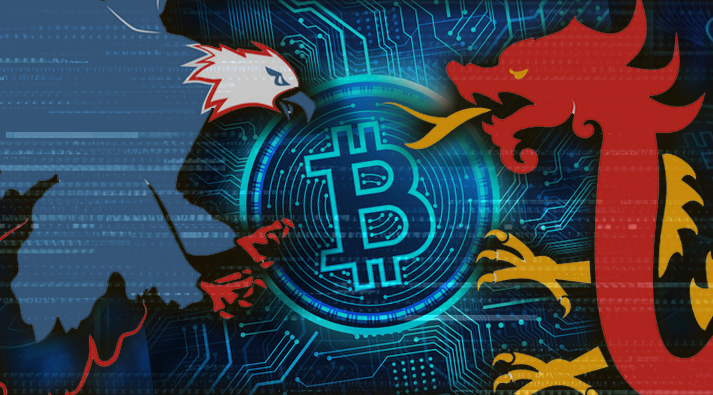How Bitcoin Mines Were Airlifted From China to the US Following China's Ban On Crypto...
Video Courtesy of Motherboard / Cryptoland
The definition of 'panic' says those feeling it have 'uncontrollable anxiety' often causing 'wildly unthinking behavior' - so when we look at incidents of 'panic selling' it's no surprise that when the panic is over and we look back, it often becomes clear that decisions made weren't made logically.
Selling crypto in response to anything happening in China is one of those illogical decisions.
The ONLY Way Economic Turbulence In China Effects Crypto is if WE Allow it...
Did people forget China COMPLETELY cut ties with the cryptocurrency market?
China's authoritarian ban on cryptocurrency trading and mining (so, everything) means that news from China triggering crashes in crypto is caused entirely by people outside of China panic selling, and including crypto among the assets they're dumping.
People based in China may decide to sell off US stocks, but they aren't dumping crypto they don't own.
Until the past year many would rightfully point out 'but many Chinese do own crypto, the government can't actually stop it'. But this isn't like before.
Yes, a couple years ago there was a thriving underground of Chinese crypto traders ignoring government warnings. Today it's not worth the risk - people have been arrested, and financial service companies face harsh penalties for serving anyone suspected of profiting from crypto.
In other words, with both law enforcement and the banking industry in China actively enforcing the ban, successful trading would be followed by the nearly impossible task of getting those profits into the country.
Profits made legitimately would need to go through a money laundering process - this is the point 99.9% of people call it quits.
"China’s government is doing everything they can to ensure that bitcoin and other cryptocurrencies disappear from the Chinese financial systems and economy" said Fred Thiel, a member of the Bitcoin Mining Council.
The Final Nail in Coffin of Crypto in China was the Launch of their Own Digital Currency...
With the launch of their own digital currency, the digital Yuen, they see crypto as a competitor to their own digital coin. In a country where getting rid of competition is as easy as outlawing the competitor, the competition was over before it started.
China May Have Wanted Bitcoin DEAD, Everywhere...
It's also worth noting that many suspect the move to ban crypto mining actually had much larger goals - to destroy bitcoin completely.
It's a bit disturbing to think about, but the idea of pulling half of all miners offline sounds like a good way bring chaos to the crypto market - and that's exactly what China did.
Thankfully, the chaos never came.
Instead of crashing, Bitcoin proved it's resiliency. Miners around the world were quick to pick up the slack, and there's rumors of Chinese miners fleeing the country with their equipment but preferring to keep their destination unknown for now.
In Closing...
My point is simple - China made their stance clear, their economy is to have no ties to cryptocurrency, period. Currently, when Chinese investors sell assets in a panic sell-off, it won't include crypto.
On weeks like this our disconnect from China is an advantage - so let's take advantage of it. Crypto could be a 'safe haven from Chinese market volatility' because on a technical level that's true - investors just need to treat it that way.
-----------
Author: Ross Davis
E-Mail: Ross@GlobalCryptoPress.com Twitter:@RossFM
San Francisco Newsroom / Breaking Crypto News
